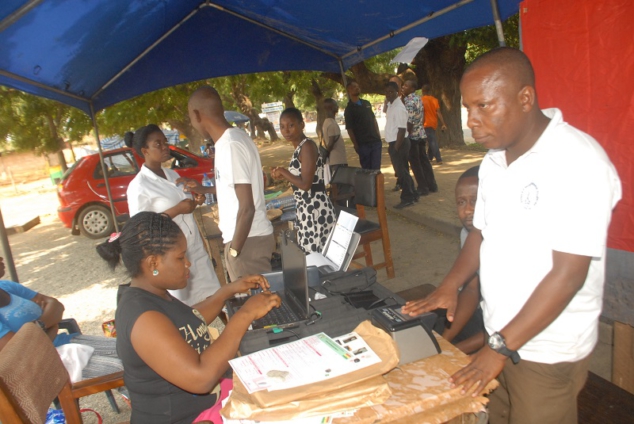
All persons legally resident in an area should be allowed to vote in the local government elections, irrespective of their nationality.
The Director of the Institute of Local Government Studies, Professor Nicholas Awortwi, who made the proposal, called for amendments of the country’s electoral laws to accommodate the reform.
He said whether such persons were foreigners or not, once they were legally resident in a local area where they paid property rate, local taxes and involved themselves in community activities, they must be allowed to vote in local level elections.
In an interview, Prof. Awortwi explained that doing that would allow for more participation in local government elections.
He clarified that the reform did not mean foreigners should be allowed to contest the country’s local elections.
“In this country, there are places where a lot of foreigners live.
In some housing estates, we have so many expatriates who have stayed there for long and they have become part of that local community.
They are legal residents.
They participate in community projects, pay property rates, they pay local government taxes, yet they are not allowed to participate in local government elections because it is based on citizenship,” he said.
The focus of the interview with the Daily Graphic was the low participation in local government elections as against the central government elections.
Prof. Awortwi said currently the country’s laws required only citizens to vote, explaining that local government was about people who lived in a local area being able to mobilise themselves to participate in their own local governance and development processes.
Citing examples from elsewhere, he said in many jurisdictions outside the country, including Holland, Germany and many Scandinavian countries, local government elections were not citizenship-based but rather about legal residents of the area.
Citizens’ participation
From 1988 when a new round of local government elections started in the country, there was a good voter turnout of about 60 per cent.
However, at the inception of multi-party elections in 1992, local government elections have never achieved anything beyond 40 per cent voter turnout.
Providing statistics of citizen participation in local government elections since 1988, Prof. Awortwi said in 1994, it was about 30 per cent; 1998, it was 40 per cent; 2002, 38 per cent; 2006, 39 per cent; 2010, 38 per cent; 2014, 38 per cent and 2019, 37 per cent.
Age for voting
Prof. Awortwi further called for a change in the age for voting in the local government elections to be different from that of the central government elections.
He said the age for voting at the local level should be reduced to 16 years.
The director of the Institute of Local Government Studies said a look at the youth group in Ghana would reveal that young people between the ages of 16 and 18 years formed the majority of the population, therefore, when the age of voting at the local government level was lowered to 16 years, it would allow for more people to participate in local government elections.
It would also whip up the enthusiasm of that age group to be interested in local issues, Prof. Awortwi said.
“We need them to appreciate that local problems require local solutions and we need to build local enthusiasm from the bottom of the pyramid,” he said.
Bringing them on board at an early age would enable the young people to grow with democratic principles and appreciate them.
“In Germany, for instance, discussions are currently ongoing to drop the age so that people 16 and 17 years can vote,” Prof. Awortwi stated.


